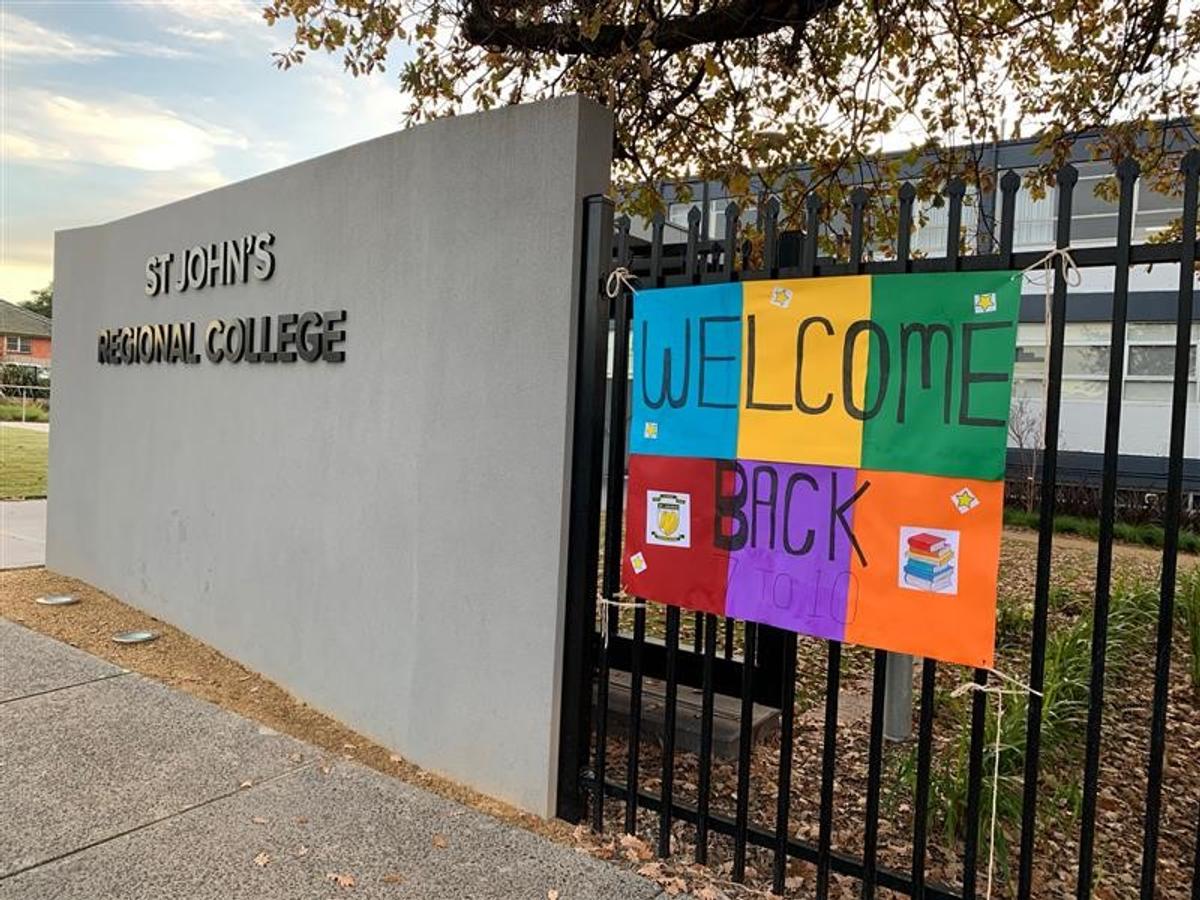Returning to school: 7 tips for parents/carers to help young people cope.
After months of remote learning and a range of COVID-19 restrictions, young people will be
returning to school routines, classrooms, classmates, teachers, expectations and, in some cases, even new school settings.
Amid the anticipation and excitement many young people are feeling, for some, leaving the home learning routine and environment may create anxiety for a range of reasons including:
- the ongoing uncertainty of COVID-19; social distancing and hygiene measures in place; family
- circumstances related to health; grief associated with a recent loss; or economic circumstances.
To prepare and support students’ return to onsite learning and the classroom/school environment, consider the following tips:
1. Talk to your child about how they feel
- It is important to encourage young people to discuss their feelings about returning to school.
- If they feel anxious or worried, help them understand this is perfectly normal, and that you and their teachers are there to support them.
- Although difficult, try not to share any anxiety you may be feeling with your child.
- Try to give them a non-judgemental and supportive place to share any worries.
2. Pack right, pack light
- Students will need to bring an individual water bottle and must have a face mask – scarves and face shields are not sufficient protection.
- College canteen will be open as normal.
3. Support young people to understand the school procedures
- Your school will also have been in touch to explain various procedures in place – such as entry points, break times and hand washing routines.
- If you are unsure you should contact your school office.
- It will be important for your child to understand social distancing, the wearing of face masks and hygiene rules and, importantly, why they are in place.
- Read school communications with your child and make sure they are prepared and know what to expect when they arrive at school.
4. Familiarise yourself with school procedures
- If you transport your child to/from school, you’ll need to know where and when to drop them off and pick them up, as well as what parts of the school you can access. Parents/Carers must continue to observe the directions of Victoria’s Chief Health Officer (ie. social distancing).
- If your child travels to/from school independently, including on public transport, you should talk to your child about getting to and from school, including observing the directions of Victoria’s Chief Health Officer (ie social distancing, group gatherings, face masks).
- If they travel home independently, make sure someone is home to meet them or if that isn’t possible, that you call them to check-in when they arrive home.
5. End of day emotions
- A school day can require a lot of self-regulation or compressed behaviour, which can lead to tired and emotional outbursts later on in the day.
- Given the length of remote learning and new school safety procedures in place, these emotions may be hard to cope with when they return home.
- It is a good idea to keep this in mind, and allow for some ‘letting off steam’ allowing young people to unwind – encourage an outdoor walk or other physical activity.
6. Stay informed
- Given the long absence from school, there may be a period of readjustment. Studying and following rules are habits that will need to be relearnt.
- Discuss and affirm familiar routines and school expectations regarding uniform, grooming, attendance and participation to help your child reconnect with their school community.
- There may be fresh challenges for your child, from working with new classmates and teachers, to coping with their work and school expectations.
- Try to stay informed about how they are getting on – but if you are concerned, contact the school office about speaking to the pastoral teacher/year level teacher.
7. Sleep and rest
- Young people may have been getting used to some unusual hours during the remote learning period and that may have extended into the school holidays.
- Make sure your child is getting a good night’s sleep for their return to school.
- It might mean introducing some earlier bedtimes than they have had recently and limiting screen time.
- A good night’s rest will help them cope with the return to school and the new routines they will be adapting to


